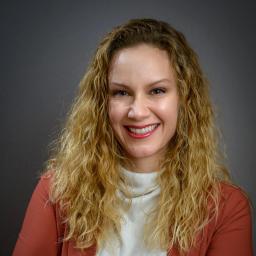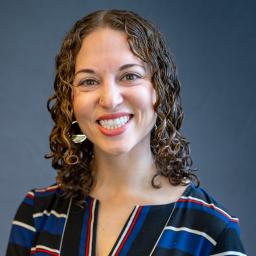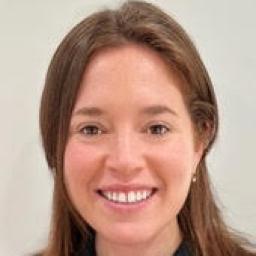Two talented educational leaders, Dr. Casey Weiss and Emily Charton, will be assuming the headship this summer, Casey at Community Day School in Pittsburgh, Pennsylvania, and Emily at The Rashi School in Dedham, Massachusetts. Gavi Elkind, Prizmah’s director of leadership development, sat down with Casey and Emily to discuss their leadership journeys and hopes for the headship.
Tell us about your professional leadership journey
Emily:
From the beginning, the positions that have excited me have felt trailblazing. I started my career in charter schools. After I graduated from New York University graduate school, I became a founding ninth grade English teacher, and, along with a small group of educators, we built a school.
When I moved to Boston, I stayed in the charter world. After I’d been at Boston Collegiate Charter School for two years, my principal accepted an assistant superintendent position in Maine, and she suggested I throw my hat in the ring for the principal role. This felt like someone tapping me and saying, “You can do this. You have a skill set that is primed for leadership and you should go for it.” I learned how to be a school leader as the principal of that institution.
After getting married and having two kids, I started looking for something that was closer to home. As I was going through my job search, I received a phone call from the director of teaching and learning at JCDS, Boston’s Jewish Community Day School. At the time, I was married to my husband, who is Jewish. My daughter had gone to the mikveh. We were raising our family Jewishly, though I was not Jewish.
Walking into JCDS was life-altering: I felt the spirit and heart, I saw what was on the walls, I heard how the educators were communicating with the children, and I knew it was the place I needed to be. I became the principal of JCDS. It was a very special time, and I learned so much and grew a lot in that job. And at the end of my time there, I converted to Judaism.
After four fulfilling years at JCDS, I felt called to return to the public sector, and I became a public school assistant principal and then a principal. I loved both jobs, but I missed the experience that I had at a Jewish institution of sharing deep, underlying values with my community. My former head of school, Dr. Susie Tanchel, encouraged me to look at the head of school position at The Rashi School, and a seed was planted. And then I received an email from the search firm saying that my name had been shared with them from a few people, and they were wondering if I wanted to have a conversation. When something comes up twice, you listen.
Casey:
From the youngest age I can remember, I’ve been drawn to working with children. I got my start professionally at the Jewish Community Center of Squirrel Hill, working in the twos and threes room. I worked for our local summer camp, James and Rachel Levinson Day Camp. Those summers greatly informed my practice.
I received my master’s in education preK-6th grade from Carlow University, and taught elementary school at Colfax Elementary in Pittsburgh for seven years. An inner voice said, I think one day, you might want to pursue leadership, so I got my principal certification at Carlow. Later on, I enrolled in the EdD program at Duquesne University, and I just became Dr. Weiss a few weeks ago!
I focused my dissertation on understanding inequities in gifted identification, specifically for public school. Through a pilot and years of collaboration with a former colleague, we developed a multiyear system of intensive long-term project work for students. My case study was mixed methods, qualitative and quantitative, and it involved getting feedback from over 100 stakeholders about how that project work impacted their child’s lives, the staff member conducting the work, and the students themselves.
During this time, I had two kids, and they started attending Hillel Academy in Pittsburgh. I fell in love with the yiddishkeit, the energy, the way the community takes care of one another. I became the assistant principal at Hillel two and a half years ago, and it has been amazing. Upon hearing that my alma mater, Community Day School, would be looking for a new head when Avi Munro retired after 20 incredible years, I knew that I wanted to be there.
What does this transition period look like for you?
Emily:
Throughout this journey, I have loved getting to know the Rashi community. As I meet more and more community members, parents, board members, educators, and students, what rings true for me is that every person holds the same values, speaks to the consistent voice of the institution, and demonstrates such a love for the school. It’s been amazing.
I am incredibly grateful to the transition committee at Rashi. The committee has been thoughtful about events for me to attend and has continued to check in about constraints on my time and attention. I believe they are setting me up for success in all the right ways.
What has been most difficult is having my head and heart in two places at once. I love my current community, and I am working hard to set the next principal up for strength. I am also still running a school! I need to be sure I leave myself space to grieve leaving my current community—even as I am so excited about this next chapter.
Casey:
I have had a highly intensive transition time. Thanks to Prizmah, I connected with Cheryl Finkel, who has become my coach and mentor. I meet with her weekly, which is a gift; I need this professional guidance, mentoring, and coaching. I’ve applied my doctoral skills coming off the dissertation to my transition, and I’ve taken a very deep dive into the school.
I’ve written a transition report that highlights major themes. I have interviewed and talked to over 200 stakeholders, internal and external. This is my city. I have the great fortune of having relationships with people from Federation and the JCC, and people that have been in my corner to help guide me and teach me, and literally helped me grow up. I now get the privilege of saying, “I am joining your ranks to serve our community.”
I continue to be elated and excited, and very ready to do the serious work of the headship. A critical part of the transition has been meeting weekly with Avi and gleaning her wisdom. Learning with and from her has made this transition special and unique. I offer a great deal of hakarat hatov to Avi, because she has allowed me to be in her building, explore, ask questions, and collect data. It’s been amazing.
What role has mentorship played in your professional journey?
Emily:
I can’t overstate the importance of having strong mentors. When I struggle with a decision, feel challenged, or want to bounce philosophical ideas off someone, I go to my mentors. I’ve had such good fortune to learn with really smart, passionate, and insightful leaders everywhere I’ve worked who have nurtured my potential and helped me see it in others. It can feel lonely when you sit in these leadership seats, but having colleagues who have experienced what I experience, who have been in this position, who know what children of this time are living through, makes all the difference.
Casey:
Much like any other field, we can always become better. We’re lifelong learners. It’s really important to know what our strengths and areas of growth are. To me, mentorship is being able to acknowledge that I don’t know how to handle a dilemma or a situation, and I want to know how someone with more experience would handle it. Mentorship is going to be not only in year one, but for years to come. I am fortunate to have many dedicated mentors—and I am unafraid to ask this question: “How would you handle this?”
What inspires you most as you prepare to take on the headship?
Emily:
We have some challenging work ahead, and I am excited to be fully and authentically myself as a leader, and to do what is best for the children. The Rashi educators and families are committed to it, and I feel like I have energy and passion and dedication to put all of that together and move Rashi into its next phase. We need to ensure that our Jewish families perceive us to be the choice for their child’s education and for their family’s communal experience. Our job is to provide an exceptional education and be an exceptional Jewish community. I’m excited to support the entire Jewish day school system.
Casey:
This education that I had from kindergarten to eighth grade directly impacted my decision to become head of school and impact the lives of others. It is my mission to serve the future Jewish generation. I have never felt more compelled to do this. That’s the Jewish lens of it. I also feel highly compelled for our school to be the best in class academically across the board. My mission is to engage, inspire, and push the next generation of Jews to be the best possible humans and advocates for our people.
What else do you want the Jewish day school community to know as your prepare for headship?
Emily:
More than ever, we need to learn how to engage with one another in our Jewish community. We need to be able to sit in discomfort, to share multiple perspectives, and to be able to remain in community, even when our opinions differ. Our children need to see our community come together as a united whole for their educational purposes. I also want to say that grace and transparency and honesty and conversation goes a long way in supporting heads.
Casey:
Jewish day schools are our future. To me, that is a global message. It is so interconnected with this moment in tome, which I have called the moment of reckoning in many ways for our people.





